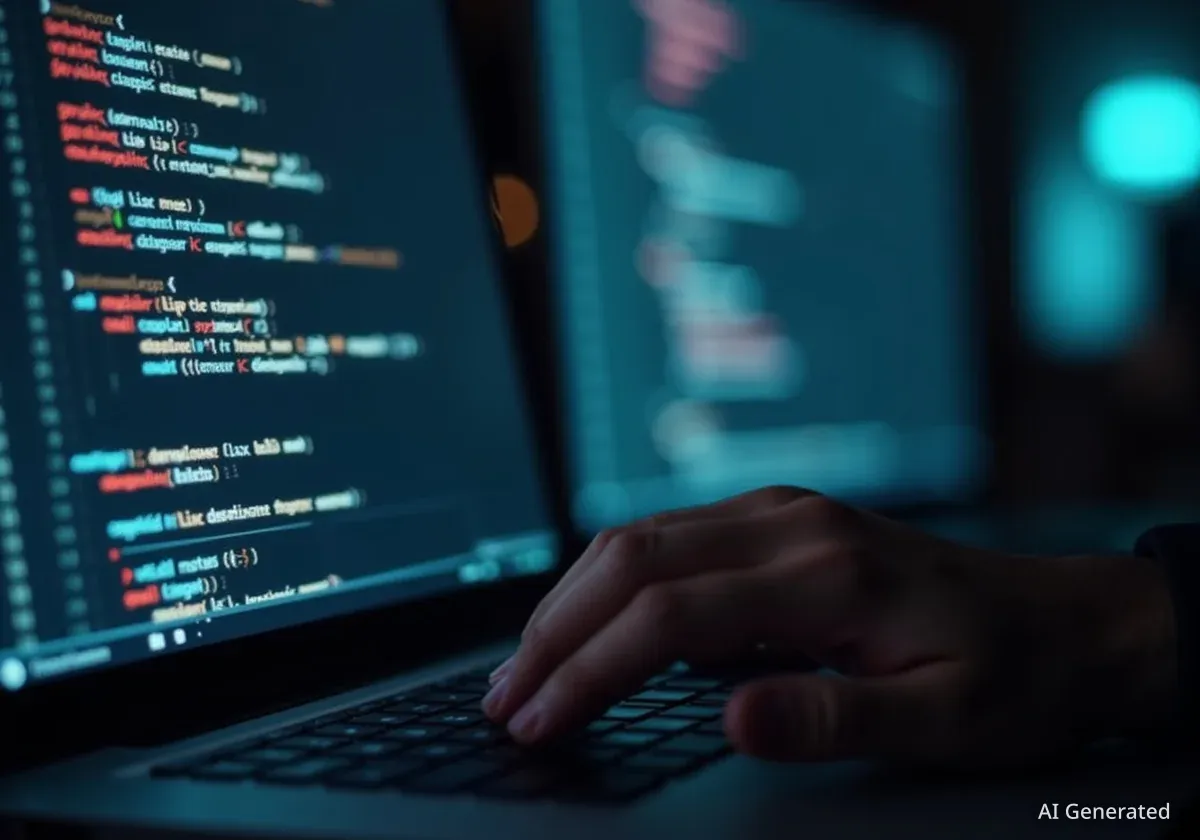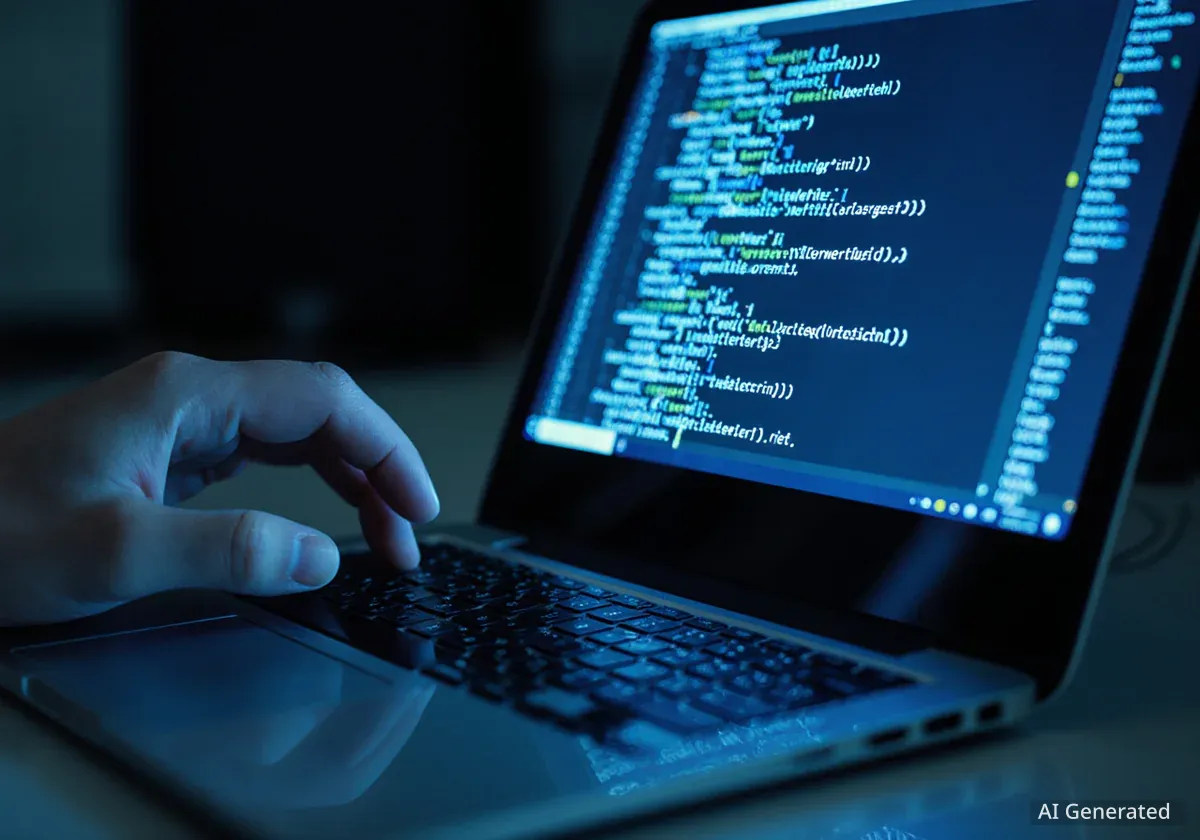Artificial intelligence is rapidly changing the software development landscape, with tools like GitHub Copilot promising to boost productivity. However, a significant number of software engineers are expressing caution, citing concerns over code quality, security vulnerabilities, and the potential for skill degradation.
While many have embraced these AI assistants, a growing group of developers is choosing to limit their use or avoid them altogether. Their reasons highlight a complex debate within the tech community about the true cost of automated coding and the future of the software engineering profession itself.
Key Takeaways
- Many software developers are hesitant to adopt AI coding tools due to concerns about code accuracy, security risks, and intellectual property rights.
- There is a growing fear that over-reliance on AI assistants could lead to a decline in fundamental programming skills, especially among junior developers.
- While AI tools can increase speed for repetitive tasks, engineers argue they often lack the necessary context for complex problem-solving.
- The debate continues on whether AI is a helpful assistant that augments developer capabilities or a tool that could eventually devalue the profession.
Understanding the Resistance to AI Coding Tools
The introduction of AI-powered coding assistants has been presented as a major leap forward for software development. Companies market these tools as partners that can write boilerplate code, suggest function completions, and even generate entire algorithms from a simple text prompt. The goal is to free up developers to focus on more complex, creative problem-solving.
Despite the potential benefits, adoption is not universal. A segment of the developer community remains skeptical. This hesitation is not rooted in a general opposition to new technology but in specific, practical concerns about the output and impact of these AI systems. Experienced engineers, in particular, have raised questions about the reliability and safety of AI-generated code.
These professionals argue that while AI can be fast, it often lacks a deep understanding of the project's architecture, business logic, or long-term maintenance goals. This can result in code that works in isolation but creates problems when integrated into a larger system.
Code Quality and the Hallucination Problem
A primary concern among developers is the quality and accuracy of the code produced by AI. AI models are trained on vast datasets of existing code from public repositories, but they do not truly "understand" programming principles. Instead, they identify patterns and generate statistically likely code sequences.
This process can lead to what are known as "hallucinations," where the AI confidently produces code that is subtly incorrect, inefficient, or contains bugs that are difficult to detect. A senior developer might spot these errors quickly, but a less experienced programmer could unknowingly introduce flawed code into a project.
"AI assistants are great at generating code that looks plausible but is fundamentally broken in a non-obvious way. It saves you five minutes of typing but can cost you five hours of debugging later on. The trade-off often isn't worth it for critical systems."
This risk forces developers to spend significant time verifying and testing AI-generated code, sometimes negating the initial time savings. For many, writing the code correctly themselves is faster and more reliable than auditing an AI's output.
Developer Adoption Statistics
According to a 2023 Stack Overflow survey of over 90,000 developers, 44% of respondents currently use AI tools in their development process, while 26% plan to soon. However, this leaves a significant 30% who are not using these tools and have no immediate plans to start.
Security and Licensing Complications
Beyond code quality, security is a major point of contention. AI models trained on public code may inadvertently replicate code snippets that contain known security vulnerabilities. If a developer accepts these suggestions without careful review, they could introduce serious security flaws into their application.
The training data itself presents another challenge: intellectual property. AI assistants are trained on billions of lines of code from sources like GitHub, which includes projects with a wide variety of open-source licenses. This has led to legal challenges and uncertainty.
The GitHub Copilot Lawsuit
In November 2022, a class-action lawsuit was filed against Microsoft, GitHub, and OpenAI. The lawsuit alleges that GitHub Copilot engages in software piracy by reproducing licensed code without providing proper attribution, violating the terms of numerous open-source licenses. This legal gray area makes some companies and individual developers hesitant to adopt the tool for commercial projects.
Developers are concerned that using AI-generated code could unintentionally violate a license, leading to legal consequences for their employer or themselves. This is particularly risky in corporate environments where intellectual property compliance is strictly enforced.
The Impact on Developer Skills and Learning
Perhaps the most discussed long-term concern is the effect of AI on developer skills. Programming is not just about writing code; it's about problem-solving, logical thinking, and understanding complex systems. Many fear that an over-reliance on AI assistants could erode these fundamental abilities.
This is seen as especially dangerous for junior developers who are still learning the basics of their craft. If they learn to depend on an AI to generate solutions, they may not develop the deep understanding needed to become effective senior engineers.
- Problem Decomposition: Breaking down a large problem into smaller, manageable parts is a core engineering skill that AI can bypass.
- Algorithmic Thinking: Understanding how and why an algorithm works is more important than simply having it generated.
- Debugging Skills: Finding and fixing bugs requires a deep understanding of the code, a skill that may atrophy if developers are not writing the initial code themselves.
Senior engineers often express that the struggle of solving a difficult problem is where true learning occurs. By removing that struggle, AI tools might be creating a future generation of developers who are proficient at prompting an AI but lack the foundational knowledge to build and maintain robust software systems from scratch.
"We risk creating a generation of 'prompt engineers' who can't function without an AI assistant. When a complex, novel problem arises that the AI can't solve, they won't have the foundational skills to tackle it themselves."
The Future of AI in Software Development
Despite the resistance, few believe that AI coding tools will disappear. The technology is rapidly improving, and its ability to handle repetitive and mundane coding tasks is a clear benefit. The debate is not about banning AI but about defining its proper role in the development process.
Many developers see a future where AI acts as a true assistant, not a replacement. It can be used for tasks like:
- Generating unit tests for existing functions.
- Automating the creation of boilerplate code for new files or components.
- Providing suggestions for API usage or library functions.
- Assisting with code refactoring by suggesting alternative implementations.
The key is maintaining human oversight. Developers who use these tools effectively treat them as a powerful, but fallible, form of autocompletion. They remain the ultimate authority, responsible for reviewing, understanding, and validating every line of code that gets committed to the project.
Ultimately, the "cursor resistance" is not about rejecting progress. It is a call for a more thoughtful and critical approach to integrating artificial intelligence into the creative and complex field of software engineering. It emphasizes that while tools can enhance productivity, they cannot replace the critical thinking, creativity, and deep expertise of a human developer.





